Many of the Jews who have experienced firsthand the murderous dictatorship of the Nazi regime in Europe during World War II, were not afraid to compare what happened to the Jewish people with what humans do to defenseless animals in the food industry, medical research industry and other industries. Here is a selection of quotations from these people on the subject.
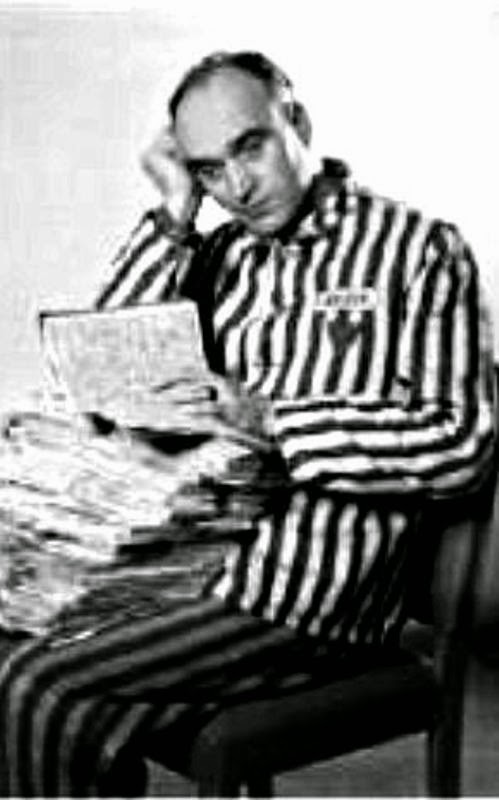
“I refuse to eat animals because I cannot nourish myself by the sufferings and by the death of other creatures. I refuse to do so, because I suffered so painfully myself that I can feel the pains of others by recalling my own sufferings.”
source: “Animals, My Brethren” \ Edgar Kupfer-Koberwitz
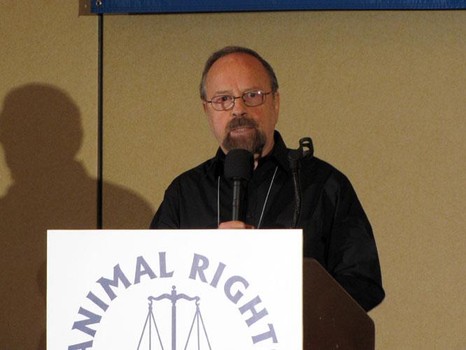
“During the 30th anniversary observance of Yom Hashoah in 1973, I heard it again: “never again.” I wondered whether the Tutsis were aware of it as they were slaughtering hundreds of thousands of Hutus in Burundi a year earlier. Or was it just about the Jews?
Shortly after that, I happened to visit a slaughterhouse. I saw terrified animals subjected to horrendous crowding while awaiting their deaths, just as my family members were in the notorious Treblinka death camp. I saw the same efficient and emotionless killing routine, as in Treblinka. I saw the neat piles of hearts, hooves, and other body parts – so reminiscent of the piles of Jewish hair, glasses, and shoes in Treblinka. I recalled the admonition by famed Yiddish writer Isaac Bashevis Singer that “For the animals, all men are Nazis, and life is an eternal Treblinka.”
And then, it finally dawned on me. “Never again” is not about what others shouldn’t do to us. It’s about what we shouldn’t do to others. “Never again” means that we must never again perpetrate mass atrocities against other living beings. That we must never again raise animals for food or any other form of exploitation.”
Source: “For the Animals, All Men are Nazis“
“In the midst of our high-tech, ostentatious, hedonistic lifestyle, among the dazzling monuments to history, art, religion, and commerce, there are the black boxes. These are the biomedical research laboratories, factory farms, and slaughterhouses – faceless compounds where society conducts its dirty business of abusing and killing innocent, feeling beings. These are our Dachaus, our Buchenwalds, our Birkenaus. Like the good German burghers, we have a fair idea of what goes on there, but we don’t want any reality checks.”
Source: a review to “Slaughterhouse” by Gail Eisnitz
“I always felt that there was something ethically and aesthetically obscene about taking a beautiful, feeling animal, hitting him over the head and cutting him up into pieces and stuffing the pieces in my face.
My experience led me to a lifelong pursuit of justice for the oppressed. I soon discovered that the most oppressed beings on earth are non-human animals and that the most numerous and most oppressed among them are farm animals.”
Source: “Eternal Treblinka” by Charles Patterson
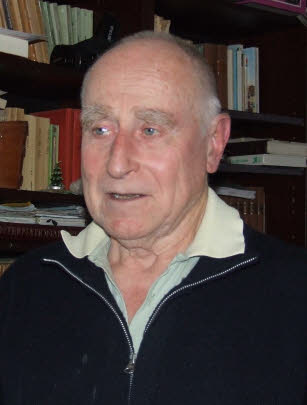
“When I see cages crammed with chickens from battery farms thrown on trucks like bundles of trash, I see, with the eyes of my soul, the Umschlagplatz (where Jews were forced onto trains leaving for the death camps). When I go to a restaurant and see people devouring meat, I feel sick. I see a holocaust on their plates.”
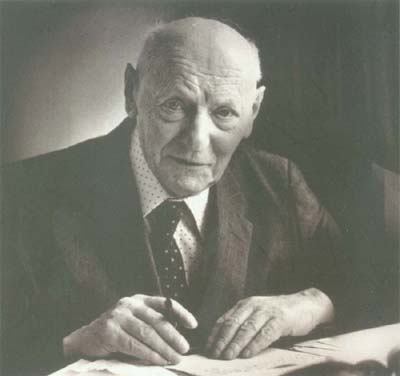
“As often as Herman had witnessed the slaughter of animals and fish, he always had the same thought: in their behaviour towards creatures, all men were Nazis. The smugness with which man could do with other species as he pleased exemplified the most extreme racist theories, the principle that might is right.”
Source: Isaac Bashevis Singer, “Enemies, A Love Story”
“What do they know-all these scholars, all these philosophers, all the leaders of the world – about such as you? They have convinced themselves that man, the worst transgressor of all the species, is the crown of creation. All other creatures were created merely to provide him with food, pelts, to be tormented, exterminated. In relation to them, all people are Nazis; for the animals it is an eternal Treblinka.”
Source: Isaac Bashevis Singer, “The Letter Writer”
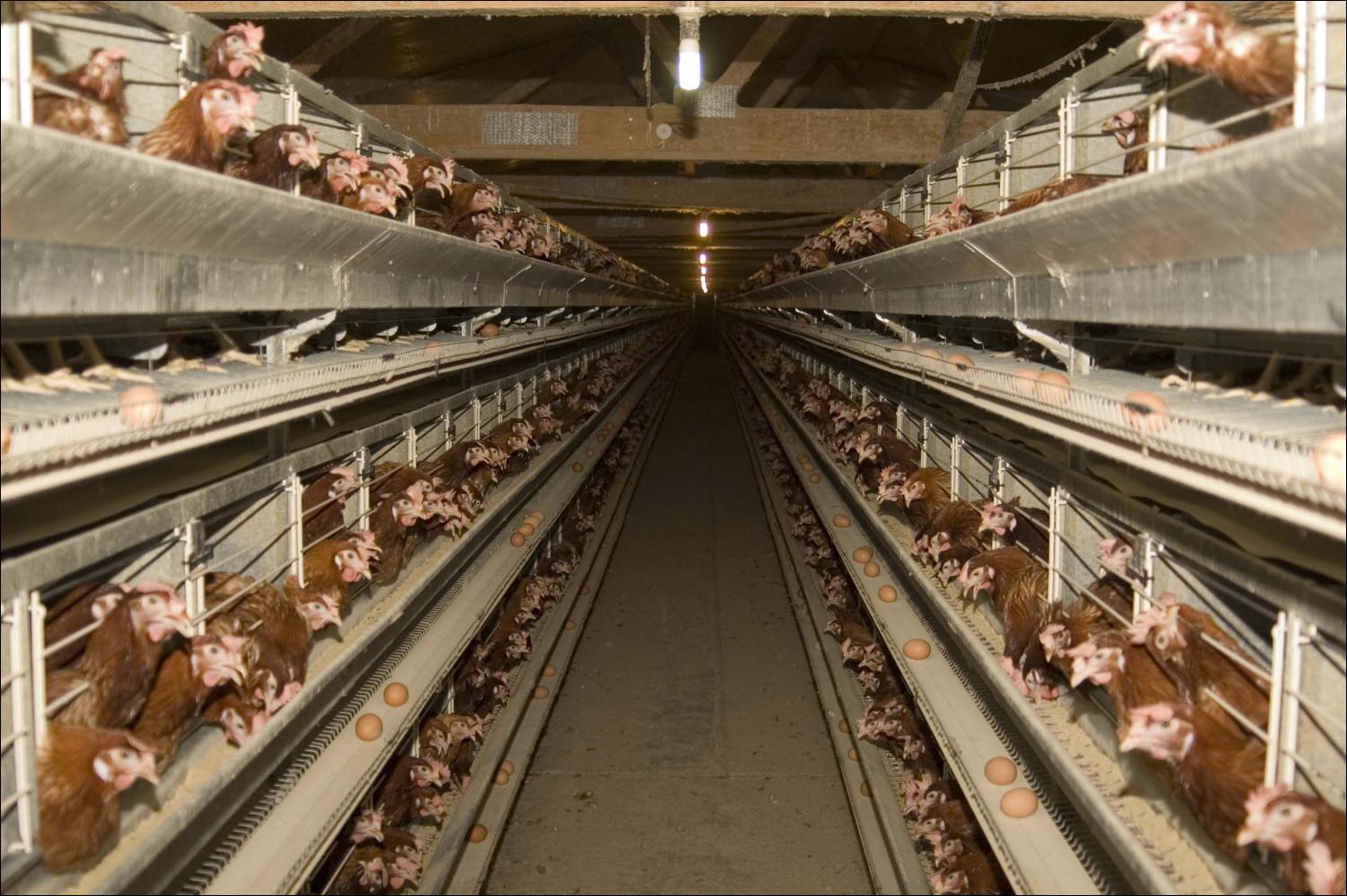
“In a state established on the scarification of more than a third of its people – the enslavement and mass murder of living beings has become part of the lifestyle: TV cook shows devoted to the best way of serving the flesh of living beings – murdered babies; and panels of judges voraciously delighting in the successful outcome. Innumerable commercials are made to persuade us that slaughtered chicks (“poultry”) are something that nothing equals, and the stolen milk of mothers whose babies were robbed from them is “nature’s gift” to us. In general, animal incarceration and the death factories which inherit their bodies are defined as “agriculture”. The holocaust is the same – only the victims vary, and the propaganda which glorifies the holocaust is infinitely perfected.”
Source: “The Lesson Has Not Been Learned” / Alexandra M.
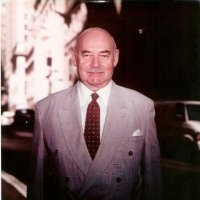
“Around two hundred feet from the main entrance to the [Holocaust] museum is an Auschwitz for animals from which emanates a horrible odor that envelopes the museum. I mentioned it to the museum management. Their reaction was not surprising. ‘But they are only chickens.'”
“The vast majority of Holocaust survivors are carnivores no more concerned about animals’ suffering than were the Germans concerned about Jews’ suffering…. we have learned nothing from the Holocaust.”
Source: “Eternal Treblinka” by Charles Patterson
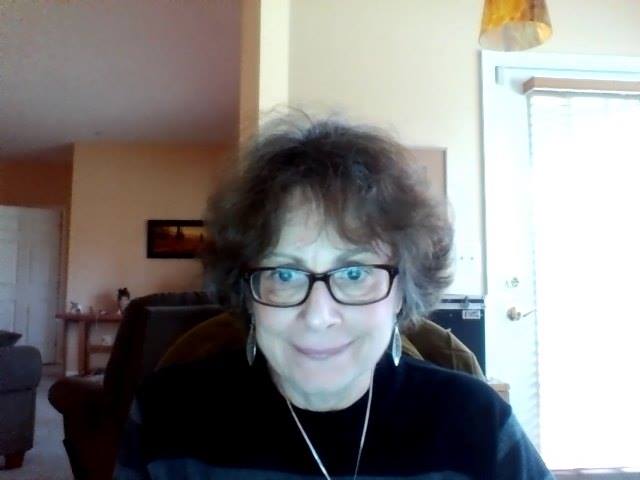
“I have really been haunted by Holocaust images my whole life, and there is no question but that I was drawn to animal rights in part because of similarities I sensed between institutionalized animal exploitation and the Nazi genocide.”
“I’m stirred most by the unabashed way in which Singer equates the exploitation and suffering of animals at the hands of humans to some of the most horrible exploitation abuses that humans have experienced. For me, no one compares to Singer in his grasp of the parallel between the Holocaust and modern animal genocides.”
Source: “Eternal Treblinka” by Charles Patterson
“When I came to understand that the oppression of non-humans on this Earth eclipses even the ordeal survived by my parents, my fate as an advocate for animals was sealed.”
“All who are not afraid to understand that the suffering that humans have so relentlessly inflicted on animals over the course of our species’ history is one and the same with the suffering that humans often inflict on each other, must read and re-read this book.”
Source: Foreword to the book “Eternal Treblinka” by Charles Patterson
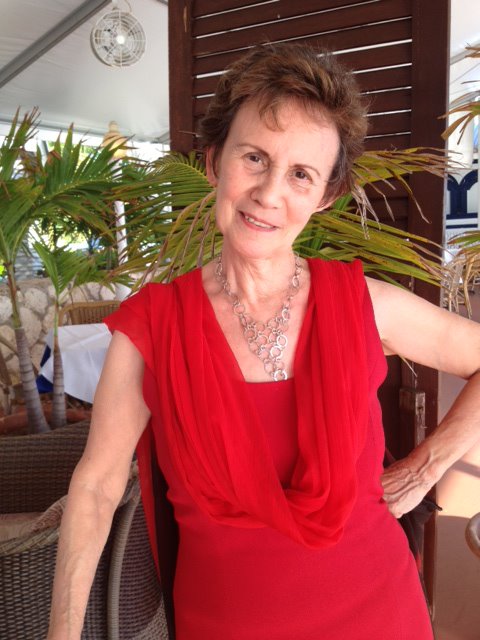
“I totally embrace the comparison to the Holocaust. I feel that violence and suffering of innocents are unjust. I believe that the abuse of humans and animals and the earth come from the same need to dominate others. I feel that I could not save my family, my people, but each time I talk about cruelty to animals and being vegetarian I might be saving another life. After knowing what I know about the Holocaust and about animal exploitation I cannot be anything else but an animal rights advocate.
I remember Simon Wiesenthal’s immortal words about telling the millions of Nazi victims that “I did not forget you” and I want to be able to say that to the billions of non-human animals as well. That is how I want to live my life.”
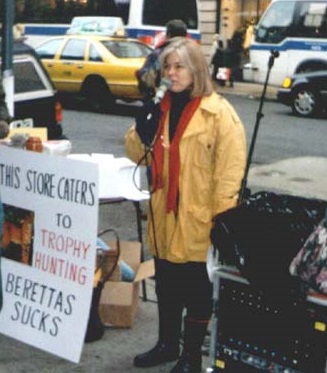
“When you grow up learning about how your family was killed by a government and by people who thought they were worthless, or worse, and who had absolute power over them and exercised it with brutal force, taking everything, even their lives, you can’t help but feel deeply for those who are in that predicament. Animals are weak, they have no voice, they can’t help each other or themselves. We were like that too.”
Source: “Eternal Treblinka” by Charles Patterson

“Really excellent book…it is an impassioned plea for justice for all creatures. It speaks to me.”
Source: Eternal Treblinka: Reactions
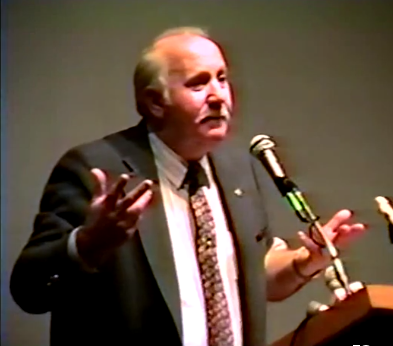
“I dedicate my mother’s grave to the geese. My mother doesn’t have a grave, but if she did I would dedicate it to the geese. I was a goose too.”
Source: “Eternal Treblinka” by Charles Patterson
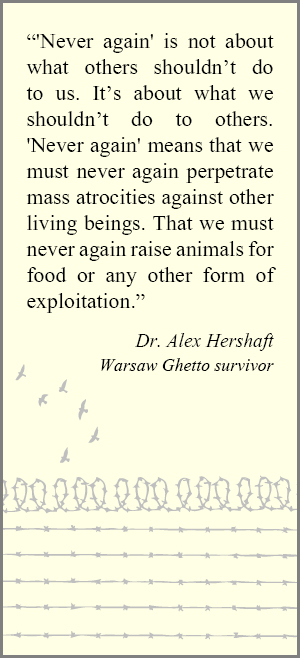
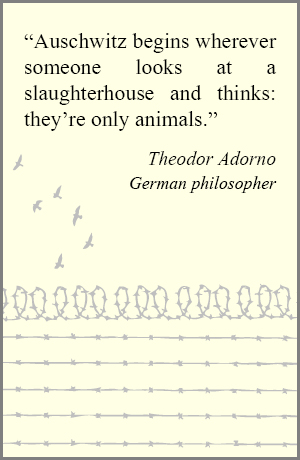
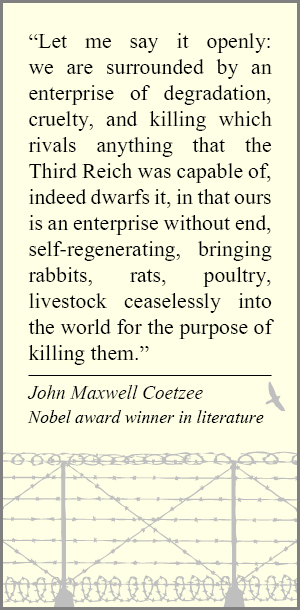
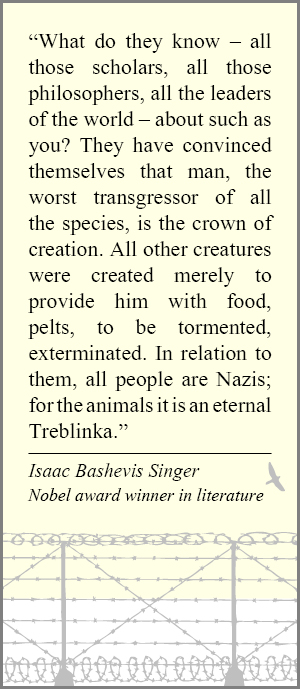
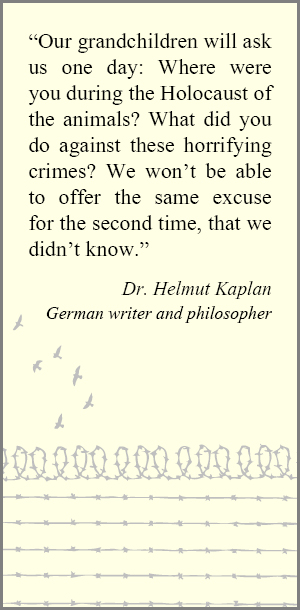
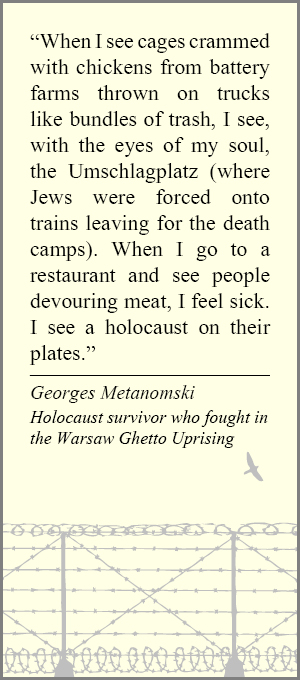
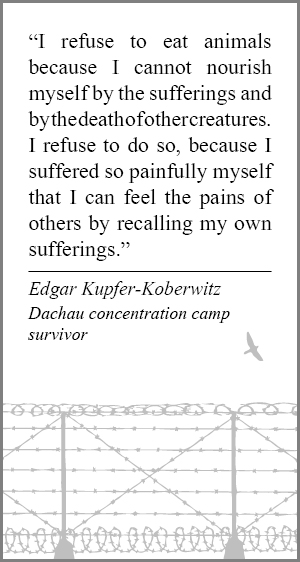
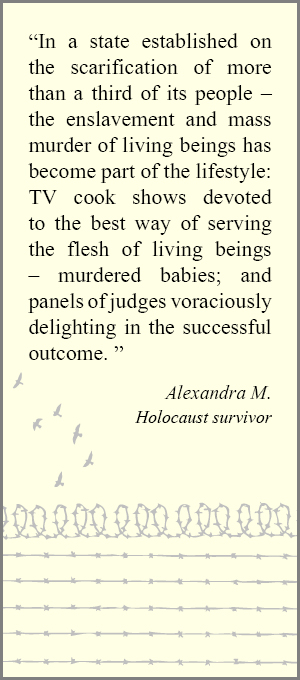
Georges Metanomski was a colleague and friend.
Hello. Thank you so much for all of your wonderful insights. My book about Holocaust Hero, Raoul Wallenberg dedicates a section on “Going Forward” referring to today’s treatment of our fellow travelers on Spaceship Earth – the Animals. Raoul Wallenberg Vegan International is a Non-Governmental Organization which I Founded, and have applied for ECOSOC Consultative status at the United Nations. It seeks to achieve a UN Convention Against Speciesm giving other species enforceable rights. Sharon Wallenberg
http://www.VeganInternational.org
I MAKE HERE A PUBLIC DENOUNCE: IN FACEBOOK UNDER THE ACCOUNT “EDGAR KUPFER KOBERWITZ” IS A LIER ITALIAN IMPOSTOR!: HI MAKE PUBLICITY FOR VEGAN PEOPLE !!!… (HI DON’ T KNOW THAT E.K.K. WAS N O T VEGAN!!!…. AND HI DON’T KNOW THAT E.K.K. WAS N O T A JEW !!!.)… SOME IMPOSTORS MUST NOT MORE CREDIT TO HAVE FROM YOU !!!.
hi u ok